#Phocis
Photo
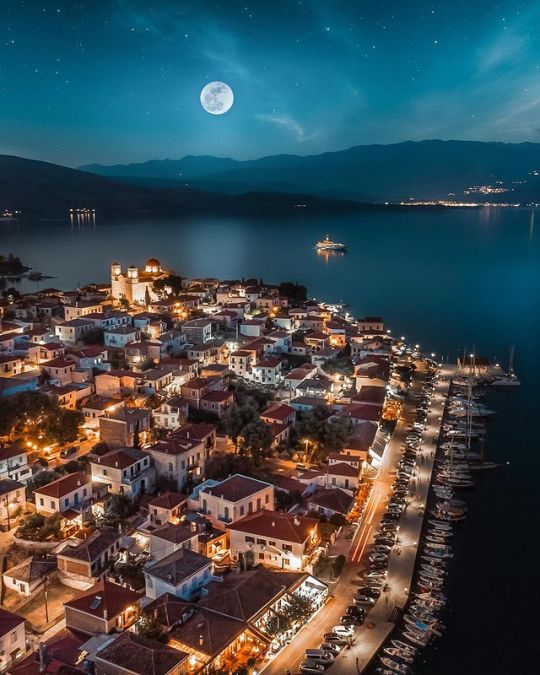
📍Galaxidi, Greece by Christos Kapoulas.
#greece#europe#night#moon#night photography#seascape#townscape#town#sea#night lights#bird's eye view#galaxidi#phocis#fokida#sterea hellas#central greece#mainland
1K notes
·
View notes
Text

Lawrence Alma-Tadema (Dutch, 1836-1912)
Women of Amphissa
757 notes
·
View notes
Text


Artoriva Bridge - Evinos River - Greece (2) by George Kaliamvakos
8 notes
·
View notes
Text
Apollo Cheat sheet
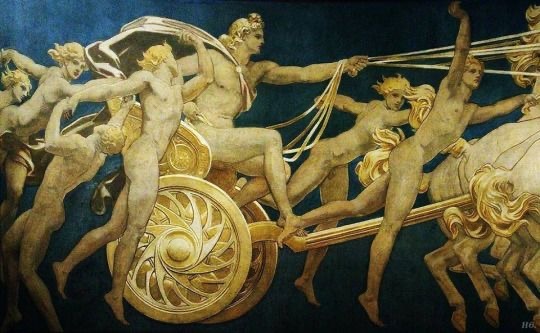
God of - prophecy and oracles, Music, song and poetry, archery, healing, plague and disease, and the protection of the young, divine distance, fertility, knowledge, dancing, wolves, locust, doorways, mice, entrances, foreigners, happy travels, light, omens, averting evil and harm, boundaries, and borders, laurels, mildews, the god who punishes and destroys, he helps and wards off evil, he protects the flocks and cattle, the foundation of towns and the establishment of civil constitutions, protection of young boys, god of purification, he’s also a Psychopomp.
Symbols- The lyre, Silver bow & arrows, Dolphins, Swans, Crows, Ravens, Lions, Wolves, Wolves, Mice, Griffins, Hawks, Snakes, Laurel wreath, Fire/flame, The sun/sunlight, Tripod, Apples
Incense/scents - Bay, Frankincense, Cypress, Clove, Cinnamon, Mugwort, Myrrh, hythincath, Rays of light radiating from his head, Branch of laurel, Wreath, amber, myrrh, lily of the valley, frankinscences, orange, lemongrass, marjoram
Colors • orange and yellow, red, gold and pure white blue, pink (means healing) purple and green (associated with the Oracle)
Herbs• Palm Tree, Apple Tree, Poplar Tree, Mistletoe, cinnamon, myrrh, bay leafs, sunflowers and red roses, oak wood, cypress (his veey dear friend ((not a lover or crush))), mint, heliotrope, Goldenseal, Date Palm, orange, lemongrass, marjoram
elements • his element is light
Day, month and festivals• Yule, Midsummer, May, sunday, his festivals are Noumenia, Delphinia, Thargelia, Apatouria, Pyanepsia, Asklepia (maybe), Pandia (maybe)
Patron of - medicine, mental health, physical health, therapy, the alphabet/words, defender of herds and flocks, justice, prophecy, and mental and moral purity, herdsmen and shepherds, anything in the medical field.
What I resonate with him • resseces pieces (I forgot why), Raven, lyre, lemonade, yellow, sun, bob Ross, painting, singing, humming, melody, Oracle’s, prophecies, knowledge, Purification, suns/ stars
Crystals•Sunstone, Citrine, Carnelian, Clear Quartz, Pyrite, Selenite, Lapis Lazuli
His sacred items - Bow and arrows; lyre; the wreath of laurel leaves (he wears that which is to be understood as Daphne’s hair.)
Planet - The sun
Tarot card- the sun, the chariot
Number - 7
Animals - Wolf, griffin, dolphins, Swans, foxes, roe deer, swans, cicadas, hawks, ravens, crows, foxes, mice, and snakes
Signs he's reaching out• Significant Dream Encounters of him, Frequent Solar Imagery, Increased Interest in the Arts, Strong Connection to Healing, seeing his Symbols and Animals, having Prophetic Experiences, finding yourself seeking the truth all of the sudden, Attraction to Light and Warmth
What u could put on his alter • Sun water, Wine (diluted with pure water), Milk, Olive oil, Herbal teas, Honey, honey cakes, Orange and lemon pastries, Lamb meat, goat meat, Fruits, Cheeses, Wheat, Breads, Golden objects (ex- such as gold bowls, gold wine cups, flakes of gold), Bows and arrows (real or fake), art, Images of the sun, All musical instruments, (especially stringed instruments), Wolf imagery, dolphin imagery, Any images of birds (especially crows and swans), Yellow, gold, and white candles, Incense he likes. He likes his alters Neat, clean, not cluttered, orderly, surround him with who he loves (ex- past lovers, Leto, artemis) , add images of wolves, mice, and ravens, Wine, incense, gifts of solar imagery, oranges
Other titles of apollon• ABAEUS/ Abaios (derived from the town of Abae in Phocis),
ACERSE′COMES/Akersekomês (Apollo expressive of his beautiful hair which was never cut or shorn.) ACE′SIUS/ Akesios (surname of Apollo, under which he was worshipped in Elis, This surname, which has the same meaning as akestôr and alexikakos as the god of averter of evil), ACESTOR/Akestôr (A surname of Apollo which characterises him as the god of the healing art, or in general as the averter of evil, like akesios), ACTIACUS (a surname of Apollo, derived from Actium, AEGLE′TES/Aiglêtês (that is, the radiant god), AGE′TOR/Agêtôr (a surname given to several gods, example is Zeus at Lacedaemon) AGO′NIUS/Agônios (a surname or epithet of several gods, like Zeus), AGRAEUS/Agraios (the hunter a surname of Apollo After he had killed the lion of Cithaeron), AGYIEUS/Aguieus (a a title describing him as the protector of the streets and public places), ALEXI′CACUS/ Alexikakos (the averter of evil, is a surname given by the Greeks to several deities like Zeus.), AMAZO′NIUS/ Amazonios, AMYCLAEUS/Amuklaios, ARCHE′GETES/Archêgetês (A surname of Apollo, under which he was worshipped in several places, as at Naxos in Sicily), Megara (The name has reference either to Apollo as the leader and protector of colonies, or as the founder of towns in general, in which case the import of the name is the same as theos patroôs.), BOEDRO′MIUS/ Boêdromios (the helper in distress), CARNEIUS/ Karneiosx, CATAE′BATES/Kataibatês (invoked by this name to grant a happy return home, katabasis (to those who were travelling abroad), CHRYSAOR/Chrusaôr) (The god with the golden sword or arms), CLA′RIUS/ Klarios (derived from his celebrated temple at Claros in Asia Minor), CO′RYDUS/Korudos (from the temple eighty stadia from Corone, on the sea-coast), CY′NTHIUS and CY′NTHIA/Kunthia and Kunthios (surnames of Artemis and Apollo from island of Delos, which is their birthplace), DAPHNAEUS and DAPHNAEA/Daphnaia and Daphnaios (surnames of Artemis and Apollo), DECATE′PHORUS/ Dekatêphoros (that is, the god to whom the tenth part of the booty is dedicated), DE′LIUS and DE′LIA/ Dêlios and Dêlia or Dêlias (surnames of Apollo and Artemis respectively), DELPHINIUS and DELPHI′NIA/ Delphinia (a surname of Artemis at Athens & The masculine form Delphinius is used as a surname of Apollo), EPACTAEUS or EPA′CTIUS/ Epaktaios or Epaktios (the god worshipped on the coast, was also used as a surname of Poseidon in Samos) EPIBATE′RIUS/ Epibatêrios (the god who conducts men on board a ship), EPICU′RIUS/ Epikourios (the helper),
EUTRESITES/Eutrêsitês (derived from Eutresis, where he had a ancient Oracle), GALA′XIUS/Galaxios a (from Boeotia, derived from the stream Galaxius),
HEBDOMA′GETES/Hebdomagetês (was derived from the fact of sacrifices being offered to him on the seventh of every month, the seventh of some month which became the god's birthday), HECAERGUS/Hekaergos (same meaning as Hecaerge in the case of Artemis),HY′LATUS/Hulatos (derived from the town of Hyle in Crete, which was sacred to him), INTONSUS/unshorn, (surname of Apollo and Bacchus showing the eternal youth of these gods, beacuse the Greek youths allowed their hair to grow until they attained the age of manhood), ISME′NIUS/Ismenios (A surname of Apollo at Thebes), ISO′DETES/Isodetêg (the god who binds all equally, is also used as a surname of Pluto),I′XIUS/Ixios (derived from a district of the island of Rhodes which was called Ixiae or Ixia.), LAPHRAEUS/Laphraios (a surname of Apollo at Calydon), LEUCA′DIUS/ Leukasios (a son of Icarius and Polycaste, and a brother of Penelope and Alyzeus. Leucas was believed to have derived its name from him), LIBYSTI′NUS, LOE′MIUS/Loimios (the deliverer from plague),
LO′XIAS/Loxias (derived by some from his intricate and ambiguous oracles), LYCE′GENES/Lukêgenês (describing him either as the god born in Lycia, or as the god born of light), LYCEIUS/Lukeios (the meaning is not quite certain, some derive it from lukos, a wolf, so that it would mean "the wolf-slayer;" others from lukê, light, according to which it would mean "the giver of light;"), LY′CIUS/Lukios (the Lycian, a surname of Apollo, who was worshipped in several places of Lycia),
LYCO′REUS/Lukôreus (A surname of Apollo perhaps in the same sense as Lyceius), MALEATES/Maleatês (surname of Apollo, derived from cape Malea, in the south of Laconia),MARMARINUS/Marmarinos (the god of marble), MALLOEIS and MELUS/Mêlos (A son of Manto, from which the sanctuary of Apollo Malloeis in Lesbos was believed to have derived its name), MOIRA′GETES/Moiragetês (the guide or leader of fate, occurs as a surname of Zeus and Apollo at Delphi) MUSA′GETES/MUSAE (?), NO′MIUS/Noumios (surname of divinities protecting the pastures and shepherds sheared with Apollo, Pan. Hermes, and Aristaeus) ONCAEUS/Onkaios (a surname of Apollo derived from Oncesium on the river Ladon in Arcadia), PAEAN/Paian, Paiêôn or Paiôn (meaning "the healing," however, used also in the more general sense of deliverer from any evil or calamity, PAGASAEUS/ Pagasaios/the Pagasaean, from Pegasus, or Pegasae, (town in Thessaly, uses the surname of Apollo there.), PALATI′NUS, (surname of Apollo at Rome), PARNO′PIUS/Paruopios (the expeller of locusts) paruôps (a surname of Apollo, under which he had a statue on the acropolis at Athen), PARRHA′SIUS/Parrastos (A surname of Apollo, who had a sanctuary on Mount Lyceius, meaning “the helper”, PATAREUS/Patareus (derived from the Lycian town of Patara, where the god used to spend the six winter months in every year), PHILE′SIUS/Philêsios (surname of Apollo at Didyma, where Branchus was said to have founded a sanctuary of the god, and to have introduced his worship) PHOEBUS/ Phoibos (the shining, pure or bright, occurs both as an epithet and a name of Apollo), PHY′XIUS/Phuzios (the god who protects fugitives, also occurs as a surname of Zeus in Thessaly), PY′THIUS/Puthios the Pythian, from Pytho (the ancient name of Delphi, often occurs as a surname of Apollo), SALGANEUS/Salganeus (a surname of Apollo, derived from the town of Salganeus in Boeotia), SARPEDONIUS and SARPEDO′NIA/Sarpêdonia (a surname of Artemis, derived from cape Sarpedon in Cilicia, where she had a temple with an oracle, The masculine Sarpedonius occurs as a surname of Apollo in Cilicia.) SMINTHEUS/Smintheus (a surname of Apollo, which is derived by some from sminthos, a mouse, and from the town of Sminthe in Troas), SPO′DIUS/Spodios (a surname of Apollo at Thebes, derived from spodos, ashes, because his altar consisted of the ashes of the victims which had been sacrificed to him.), TEGYRE′IUS/Tegurêios (a surname of Apollo, derived from the town of Tegyra in Boeotia. where, according to some traditions, the god had been born), TELMI′SSIUS/Telmissios (a surname of Apollo derived from the Lycian town of Telnissus or Telmessus),TEMENITES/Temenitês (a surname of Apollo, derived from his sacred temenus in the neighbourhood of Syracuse), THEOXE′NIUS/Theoxenios (a surname of Apollo and Hermes), THYMBRAEUS/Thumbraios (A surname of Apollo, derived from a place in Troas called Thymbra, where he had a temple in which Achilles was wounded, or from a neighboring hill of the same name), ZOSTERIUS and ZOSTE′RIA/Zôstêria (a surname of Athena among the Epicnemidian Locrians, The masculine form Zosterius occurs as a surname of Apollo in Attica, on the slip of land stretching into the sea between Phaleron and Sunium)
Epithets•Abaeus, Apollo Acesius, Acestor, Acraephiaeus Apollo, Acraephius Apollo, Actiacus Apollo, Apollo Actiacus, Apollo Aegletes, Agetor, Agonius, Agraeus, Agyieus, Alexicacus,Amazonius, Anextiomarus, Aphetor Apollo, Aphetorius Apollo, Apollo Musagetes, Apollo Soranus, Apollo Apotropaeus, Apulu, Archegetes, Argyrotoxus Apollo, Apollo Articenens, Apollo Averruncus, Apollo Clarius, Apollo Coelispex, Apollo Culicarius, Apollo Cynthius, Apollo Cynthogenes, Delius Apollo, Apollo Delius, Apollo Delphinius, Apollo Didymaeus, Apollo Epicurius Apollo Galaxius, Apollo Genetor, Hecaërgus Apollo, Apollo Hecebolus, Hekatos, Helius Apollo, Apollo Helius, Apollo Iatromantis, Apollo Iatrus, Apollo Ismenius, Kourotrophos, Apollo Leschenorius, Leucadius, Apollo Loxias, Apollo Lycegenes, Lyceus, Apollo Lycoctonus, Manticus Apollo, Apollo Medicus, Apollo Nomius, Apollo Nymphegetes, Paean (god), Apollo Paean, Apollo Parnopius, Apollo Patroüs, Apollo Phanaeus, Ptoion, Ptous, Pythius Apollo, Apollo Pythius, Apollo Smintheus, Apollo Sosianus, Thyraeus, Virotutis. (I’m not gonna put who, why or what the epithets are, cut me some slack 😔)
Equivalents• Abru (Berber), Horus & Ra (Egyptian), Aplu (Etruscan), Helios (Greek), Apollo & Janus (Roman), Nergal (Aplu Enlil) (Semitic)
Offerings• Candles (he’s the god of light), Paint brushes/paints, Canvases, Colored pencils, markers, crayons, Collages, Journals, Art books, Art prints, Anything you mad, Sculptures, Zines, Stickers, Any art supplies, Music boxes, Records, CDs,Cassettes, Record players,radios, MP3, Headphones, Music posters, Band merch, Instruments (especially String instruments), Dance shoes, Concert tickets, CD book holders, Sun and Light imagery, Sunscreen, Aloe for sunburns, Golden objects, Matches, Candles, Sunflowers/sunflower seeds, First aid kits, Medicine, Pain relievers, Band - aids, Ice/heat packs, Rice socks, face Masks, Aloe, Ambulance toy cars,Adaptive aids, Darts, Bow and arrows, Arrow quiver, Dart board, Targets used in archery, Bullseye used in archery, Snake skins, Snake imagery (ex - Python), Laurels, Bay leaves (because of Daphne), Palm trees (based on his birth myth), Ravens/Crows related things, Crow feathers, Cattle/turtles (related to Hermes birth myth), Swans (the animals Pull His chariot), Hyacinths (Hyacinthus is his past lover), Locks of hair, Vanilla flavored/scented things , Honey, Sunny D drink, Lemons/lemon juice, Oranges/orange juice, Citrus, Water, chocolate milk (UPG), molten orange-scented wax cube used on an oil burner, The first bite of every meal (keep a tea plate close by at mealtimes), Pot Pourri, visit a clairvoyant, Welcome foreigners, teach others your own culture/language, make sure foreigners are able to find helpful resources and social life in your community, Make sure the street outside your house is clean and secure, Resin, Sun-shaped cookies or cakes, Wine, Golden cakes, Golden raisins.
Devonatal- Donate to medical charities, Support beginner indie artists and musicians, Sing to Him, Play musical instruments for Him, Hold dance parties in his honor, Make a playlist for Him and listen to it, Read poetry to Him, Take care of your mental health in his honor, take your medicine in his honor, Try/do archery in his honor, Try/do different types of divination (ex- Tarot/Oracle decks, Pendulums, Rune stones, Charm casting supplies, Crystal balls, Scrying bowls, Cookie fortunes, Tea leaves), Try and wake up early and watch the sun rise, Go for a walk and feel the warmth from the sun, Let more sunlight into your home/room, Learn a musical instrument, learn how to sing, Learn simple medical care (ex- CPR), research his family in his honor, research Apollon, Attend pride, advocate for LGBT+ rights, Wear yellow clothing in his honor, wear orange clothing in his honor, Honor Leto and Artemis in his honor, Pray to Him/ speak to Him often (ex- for guidance, healing/good health, and new inspiration, protection, improvement in your mental health, fertility, ecstasy, for everything going well in the health aspect), Dance and sing to your favorite songs or songs you’d think He would like, Throw a feast in His honor, Support/donate to your local Hospital in his honor, Exercise in his honor, Get vaccinated in his honor, Get STI tested in his honor, practice Self care in his honor, Keep a first aid kit at home/in your car in his honor, Learn about alternative medicine in his honor, Advocate for accessible in his honor, Advocate for disability rights in his honor, Volunteer at a hospital in his honor, Give blood/plasma in his honor; Volunteer at a retirement home in his honor, Learn about anatomy/biology/nutrition in his honor, Learn about health conditions/rare disorders in his honor, Eat healthy for your body in his honor, Help fund surgeries if you can in his honor, Trip sit for someone in his honor, Listen to your body when it needs something in his honor , Sunbathe in his honor, Wear sunscreen in his honor, Start a garden in his honor, Make sun water in his honor, Music Go to a concert/show, Listen to music in his honor, Make a playlist for someone you love in his honor, dance in general in his honor, Sing in general in his honor, Support local bands in his honor, Explore new music in his honor, Daily tarot card/rune stones sessions in his honor, Make an oracle deck in his honor, Give divination readings in his honor, do Shadow work in his honor , do Colormancy in his honor, Make something in his honor, Draw in his honor, paint in his honor, craft in his honor, Color something for him, Make a zine in his honor, Go see a play in his honor, Get a tattoo in his honor, Throw darts in his honor, Use a slingshot in his honor, Go to a shooting range in his honor, follow and support artist/poet YouTubers and their social media, Check in with your neighbors, do Photography (painting with light), light a candle in his honor because he’s the of…light!
Crystal•Sunstone, Citrine, Carnelian, Clear Quartz, Pyrite, Selenite, Lapis Lazuli, amber, calcite (only the color honey/yellow), quartz (rutilated or clear), rose quartz.
Parentage• Zues and Leto
Siblings• his full sibling was his twin Artemis, His half siblings were Athena, Hermes, Dionysus, Aphrodite, Ares, Hephaestus and Persephone, Heracles, Ares, Perseus, Hebe, Aphrodite, Athena, Some Muses, Eileithyia.
Works well with• people who are respectful, and are honest, and not boastful.
Jewelry • friendship bracelets
Hates• saying that your better than him, (too boastful), being to stubborn to learn (he is the god of knowledge.), and anything contradicting his godlyness
Mortal or immortal • immortal.
Zodiac • Leo.
Curses• Sickness, and often seeing yourself lying, and in trouble.
Blessings• your healthy and protection and purification.
Vows/omans• he swears he will be Hermes best friend, and that he will never marry (he still has godpouses, pretty frequently, just as a boyfriend) because he swore he would never because he couldn't choose between all the Muses.
Morals• Morally grey.
Courting• he is unmarried.
Past lovers & crushes• Admetus (a crush), Daphne (rejected him and he fell so in love she had to run away and turn into a tree..), all the nine muses (couldn’t choose so decided to never unwed), Cyrene (a crush), Evadne (a lover who bore him a child.), Rhoeo (bore him a child and made him raise it..) Ourea (had a crush on Apollo and they hooked up on his exile and bore him a kid), Thero, Hyrie or Thyrie (said they were lovers but he made them suicidal so..idk..). Hecuba (bore the child who made Apollo kill Achilles.), Coronis (bore him Asclepius), Creusa (bore him a child and left him to die and then to be raised by a priestess of Apollo.), Hyacinthus (his most dear male lover.), Cyparissus (a dear friend but still a honorable mention.), Admetus (a crush), Branchus, Adonis (poly with apollon and Aphrodite), Helenus, Hippolytus of Sicyon,Hymenaios, god of marriage hymns, Iapis, Phorbas, minthe (who he turned into mint)
Personality• He has a quick temper, He’s very energetic, cheerful, wise, honest and kind, but sometimes he could be jealous (from what I've heard.)
Fact• He was the god of so many things that even the Ancient Greeks got confused, Apollo was temporarily stripped of his immortal power by Zeus – twice (maybe y’all might have a little more in common with being atleast human once!), he tried to over throw his father Zeus once! (He failed.)
Roots• Greek mythology, born at Delos in Cyclades archipelago.
Appearance in astral or gen• depicted as a handsome, beardless youth with long hair and wears a wreath and branch of laurel, bow and quiver of arrows, usually accompanied with a raven, and holding a lyre.
Children• Acraepheus, Aeneus, Agamedes, Agreus, Amphiaraus, Amphissus, Amphithemis, Anius, Apis, Apollonis, Arabius, Aristaeus, Asclepius, Borysthenis, Cephisso, Chariclo, Cinyras, Coronus, Cycnus, Delphus, Dius, Dorus, Dryops of Oeta, Eleuther, Epidaurus, Eriopis, Erymanthus, Eumolpus, Eurydice, Eurynome, Hilaeira, Hymen (god), Ialemus, Iamus, Idmon (Argonaut), Ion, Ismenus, Korybantes, Laodocus, Lapithes (hero), Linus (Argive), Linus, Linus of Thrace, Lycomedes, Lycorus, Melaneus of Oechalia, Melite, Miletus, Mopsus, Naxos, Oaxes, Oncius, Orpheus, Phemonoe, Philammon, Philander, Phoebe, Phylacides, Polypoetes, Scylla, Syrus, Tenerus, Tenes, Troilus, Trophonius, Zeuxippus of Sicyon.
Pet• the swans pulling his chariot called the “singers of Apollo” or just “birds of Apollo”
Status• Greek mythology god, in the big theoi, not a Demi god.
Prayers•
Prayer to Lord Apollon for Help with Divination
Hear me, Foreseeing Apollon, Son of Indomitable Zeus and Gentle Leto, Brother to Far-Shooting Artemis. He who speaks of truth, If I have ever revelled in your sunlight, accept this prayer, Apollon Leader of Fate, I ask you to be with me during this divination and to guide my cards with your knowledge, I ask for your favour with a token of my praise, I offer to you (offering)- @praise-to-the-theoi
To Lord Apollon when taking medication
Hear me, healing Apollon, Father to Soothing Asklepios. He who controls both plague and healing, If I have ever honoured you, please accept this prayer, Shining Apollon, Please allow me to be safe when taking this medication, to aid it in its effectiveness, and to reduce the likelihood of negative side effects. I ask for your favour with a token of my praise, and I take this medication in your honour. -https://www.tumblr.com/praise-to-the-theoi
Prayer to Artemis and Apollon
Praise today, O Lord Apollo and Lady Artemis, rulers upon the Sun and Moon. The Celestial Twins, on this date, join each other in the sky, shining upon us their divine light and presence. Praise the children of Great Zeus and Leto; Hail Lady Artemis, the oldest daughter, who helped her mother at birth. Godess of the hunt, divine virgin, patroness of girls, their childhood and innocence. Hail Apollon, youngest son, born by his sister's hand. God of the plages and sickness. Patron of the arts, music and poetry. May they raise their bows and guide us towards their light. - serotoninbetweenpages
Prayer with his epithets in it-
Let us hymn Paean the great god, Apollo; Immortal, gloriously formed, unshorn, soft-haired, Stern-hearted, king, delighting in arrows, giver of life, Joyous, laughing, slayer of giants, sweet-hearted, Son of Zeus, slayer of dragons, lover of the laurel, Sweet of speech, of ample might, far-shooter, giver of hope, Creator of animals, divine, Jove-minded, giver of zeal, Mild, sweet-spoken, sweet-hearted, gentle-handed, Slayer of beasts, blooming, charmer of the spirit, soft-speaking, Shooter of arrows, desirable, healer, charioteer, Weaver of the world, Clarian, strong-hearted, father of fruits, Son of Leto, pleasant, delighting in the lyre, resplendent, Lord of the mysteries, prophet, magnanimous, thousand-shaped, Lover of the bow-string, wise, stiller of grief, sober,Lover of community, common to all, taking thought for all, benefactor of all, Blessed, making blessed, Olympian, dweller on the hills, Gentle, all-seeing, sorrowless, giver of wealth, Saviour from trouble, rose-coloured, man-breaker, path-opener, Glittering, wise, father of light, saviour, Delighting in the dance, Titan, initiator, revered, Chanter of hymns, highest, stately, of the height, Phoebus, purifier, lover of garlands, cheerer of the spirit, Utterer of oracles, golden, golden-complexioned, golden-arrowed, Lover of the lyre, harper, hater of lies, giver of the soul, Swift-footed, swift-voiced, swift of vision, giver of seasons. Let us hymn Paean the great god, Apollo.
- Epigram from Book 9 of the Greek Anthology, translated by W.R. Paton (1916-18)
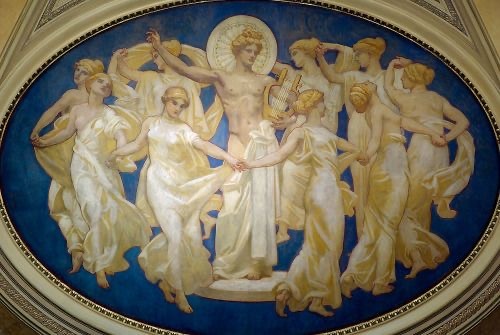
Links/websites/sources •
@praise-to-the-theoi
ofbloodandfaith
Reddit · r/Hellenism5 comments · 1 year agosimple offerings for apollo? : r/Hellenism
https://en.m.wikipedia.org/wiki/Apollo#Children https://www.thoughtco.com/roman-equivalents-of-greek-gods-4067799https://www.reddit.com/r/Hellenism/comments/d20s5v/would_amber_be_an_appropriate_incense_for_apollo/https://www.reddit.com/r/GreekMythology/comments/du0z4k/did_the_olympian_gods_have_particular_color/https://www.tumblr.com/eldritchhorror06https://www.tumblr.com/themodernwitchsguidehttps://web.pdx.edu/~scarmody/art342/exercise2/index.html#:~:text=Animals%20sacred%20to%20Apollo%20include,foxes%2C%20mice%2C%20and%20snakes.
let the light in and let your truth of loving Apollo shine aswell
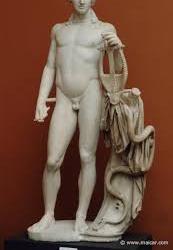
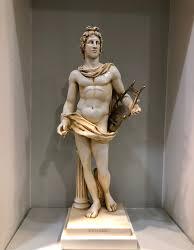
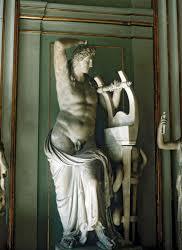
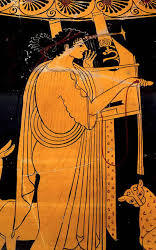

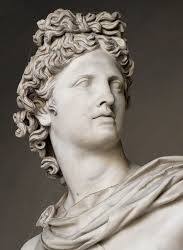
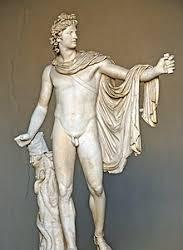
#the gods#hellenic devotion#hellenic polytheism#doing the research for you#hellenic worship#greek gods#greek mythology#qoutes#ancient greek#apollo#greek pantheon#apollo deity#hellenism#hellenic#Apollon#e offering#cheat sheet#greek polytheism#greek paganism#pagen#Pagen#deities#deity worship#polytheism#deity work#religion
277 notes
·
View notes
Text

Pythia: Oracle and High Priestess of Delphi
Talon Abraxas
Situated on the south-western spur of Mount Parnassus in the valley of Phocis, Delphi was associated with the Greek god Apollo. According to legend, the hill was guarded by a giant serpent called Python, who was a follower of the cult of Gaia (Earth), for hundreds of years. After killing Python, Apollo claimed Delphi as his own sanctuary.
Perhaps this legend was a reflection of actual events. During the Mycenaean period (14th-11th centuries BC), there were small settlements in Delphi dedicated to the Mother Earth deity. Subsequently, the worship of Apollo was established between the 11th and 9th centuries BC. By the 8th century BC, Delphi was already renowned internationally for the prophetic powers of the Pythia. Yet, it was only in the following century that the Oracle became a Panhellenic institution, when Apollo’s advice was sought by the Greek cities on important matters of state.
Pythia was the name given to any priestess throughout the history of the Temple of Apollo at Delphi. The priestess was a woman over 50 years of age who lived apart from her husband and dressed in maiden’s clothes. According to Plutarch, who once served as a priest at Delphi, the Pythia first enters the inner chamber of the temple ( Adyton). Then, she sits on a tripod and inhales the light hydrocarbon gasses that escape from a chasm on the porous earth.
43 notes
·
View notes
Text

United in Battle Through the Crisis
Orestes and Pylades are renowned figures in Greek mythology and literature, often depicted as the epitome of deep friendship and loyalty. They appear in various ancient works, notably in the tragedies of Euripides, and their story is intricately linked to the complex and tragic narrative of the House of Atreus.
Orestes was the son of Agamemnon and Clytemnestra, central figures in the saga of the Trojan War and its aftermath. Pylades, the son of King Strophius of Phocis and nephew to Clytemnestra, was Orestes' cousin. Their friendship commenced in their youth when Orestes was sent to Strophius for protection following the murder of his father Agamemnon by Clytemnestra and her lover Aegisthus.
Their relationship is often portrayed as the ideal of ancient Greek friendship and loyalty. They support each other in times of difficulty and danger, prominently displayed in the story of Orestes' vengeance for his father's murder. Pylades accompanied Orestes on his return to Mycenae to kill his mother Clytemnestra and Aegisthus, an act seen as righteous vengeance but one that plunged Orestes into deep despair and madness.
In Euripides' tragedy "Orestes," Pylades' unwavering support and compassion for Orestes are highlighted, especially as Orestes is tormented by the Furies. Pylades speaks little in this play, but his constant presence by Orestes' side during his tribulations exhibits his profound connection and loyalty.
The relationship between Orestes and Pylades has been idealized in later literary and artistic works, often symbolizing true friendship and devotion. In some interpretations, their relationship is also seen as romantic or erotic, though this is not explicitly stated in ancient sources. Their story exemplifies how friendship and loyalty were highly valued in Greek mythology and culture, considered essential elements of human relationships.
Text supported by Chat GPT-4
Images generated with DALL-E, overworked SDXL-1.0 (OpenDalleV1.1_XL) with inpainting and composing.
#LoveInAntiquity#gaycomic#gaylove#samesex#manlovesman#Orestes#Pylades#ancientfetish#ancientgay#helenistic
29 notes
·
View notes
Text
Artemis + Elaphobolia

(photo credit: eet!verleden)
Another popular festival, that of Elaphobolia, takes place on the sixth day of Elaphebolion (March/April) and may have been named after the elaphos cakes in the story of the Samian rescue of 300 boys told by Herodotus (Histories 3.48).
The Corinthians had captured 300 sons of noble Corcyraeans and were offering them as eunuchs in the city of Alyattes. When the men escorting the boys stopped in the city of Samos, the Samians were horrified to discover the purpose of their journey. In an attempt to save the boys from their fate, the Samians told the boys to hide in the sanctuary of the temple of Artemis.
When the Corinthians heard where the boys were hiding, they knew they could not enter the sanctuary to retrieve them, so they blocked all food and supplies going to the sacred temple, intending to starve them out. In response, the Samians invented a festival, which they continued to perform well into Herodotus’ lifetime:
Each evening, as night closed in, during the whole time that the boys continued there, choirs of youths and virgins were placed about the temple, carrying in their hands cakes made of sesame and honey [elaphos] in order that the Corcyraean boys might snatch the cakes and so get enough to live upon. (Herodotus, Histories 3.48)
This nightly dancing around the temple with cakes in hand went on for so long that the Corinthians were forced to give up their ownership of the boys and leave Samos. Once the boys were free of their fate, the Samians returned them to their home of Corcyra, but this festival of salvation and ingenuity continued in honor of the goddess for generations thereafter.
Many other states besides Samos celebrated the festival of Elaphobolia, but in many cases different stories of origin were told and other events were also included in the feasts and celebrations.
For example, in the town of Hyampolis, in Phocis, citizens similarly celebrate Artemis on the sixth day of Elaphebolion, but the festival’s origin story is based on the victory of the townspeople over the Thessalians, who had been ravaging the surrounding countryside. In this case, elaphos cakes made of dough, honey, and sesame seeds in the shape of deer are offered to Artemis Elaphebolos during the festivities.
Whatever the source of the festival may be, Artemis is central to the celebrations in the month of Elaphebolion and honoured repeatedly as the saviour of young men, as well as the protector of townspeople who offer her piety and sweet sustenance.
- She Who Hunts: Artemis: The Goddess Who Changed the World by Carla Ionescu
#Carla Ionescu#Elaphobolia#artemis#diana#goddess artemis#diana goddess#artemis deity#artemis worship#artemis devotion#artemis devotee
12 notes
·
View notes
Photo

When speaking about the Oracles of Apollo, we often just mention the most famous oracle of Delphi with its Pythia or the oracle of Phocis with the Mount Parnassus nearby. However, Apollonian cults across the Ancient Mediterranean had not one or two, but more oracles out of which some major ones are: Delphi, Didyma, Hierapolis, and more - they were scattered across Mainland Greece and Asia Minor.
The oracle of the Ancient Didyma is one of these major sites that has had just as interesting of a history of divinatory practices as any other one of Apollo’s oracles.
Oracle of Didyma, first properly mentioned in the Homeric Hymn to Apollo, is a sanctuary located in the town Didim of Ancient Anatolia, Asia Minor (current Turkey), now formally known as Yenihisar. The name of the place is of unclear origin: some researchers suggested Greek origins, seeing that dydimos means “twin” and the association with Apollo and Artemis is obvious, but Artemis’ cult of Didyma had no connections nor mirroring of that of Apollo. Others suggested Zeus as the “partner” God of Apollo at the site - but we have so far found no evidence of there being a Zeus Didymos cult at any point of Ancient cultic activity. Fontenrose suggested that the name must be Carian (Anatolian language) and go along with other Anatolian place names: Sydima, Idyma, Loryma, Kibyma, and such.
The earliest archaeological finds so far discovered at the location site date the cult back to the 8th century BCE, possibly following the Ionian conquest over these Carian lands. The earliest dated pieces of pottery found in Didyma link us back to the 14th century BCE and the Mycenean civilization. Ancient writers, such as Pausanius, claim that the oracle has operated since the 11th century BCE, long before the Ionic invasion, but we are yet to find evidence to back up that claim.
As of current, the city-sanctuary is attested to the Ionian cult of Apollo and is located around 10 kilometers South from the city of Miletus.

While the structural identity of the temple is incredibly interesting and doubles the temple at Delphi in a lot, I will only mention some peculiarities that the Didyma temple of Apollo had: a temenos (a protective wall around a sacred place), a stoas (freestanding surrounding collonade), a circular altar, a naiskos (small inner altar with a pediment), a chresmographeion (office of the oracle), and a sacred well preceding the temple.
Interestingly enough, the temple of Apollo at Didyma, as many scholars agree, was likely built with the aim to create an underground adyton, or inner shrine. Archaeological research and astronomical events observed at the site show that the sanctuary, built slightly differently from other Apollonian oracles in terms of its stellar orientation, was probably meant to face the rising of the constellation of Lyra.
It is possible that the temple was unroofed in both Archaic and Hellenistic age, when the building went through major rebuilding. Interestingly enough, the site of Didyma had musical and drama contests held annually but lacked a theater or an odeion.

The oracle of Didyma, though at first one of the two most popular oracular sites in Asia Minor, has seemingly gone through a decline after the destruction of the temple by Persians in the 5th century BCE. It has been through an uprising in the Hellenistic era with a following decline as Christianity spread, rendering the temple and the oracle unused as late as 3rd century AD.
Unfortunately, the information on the divinatory practices at the site of Didyma is not as well preserved as the information at other sites, such as the oracle of Delphi. We do know that the temple had a priest or a priestess to deliver versed prophecies - the gender of the deliverer of prophecies, through, is unknown.
Generally, there are two main types of divination that have been attested as used at the Didyma temple: mantic trance and cleromancy

We do not know enough to state anything on the divinatory process involving mantic trance at the site during the Archaic age, as all evidence so far has been inconclusive. However, there are surviving inscriptions and writings that show the form of divinatory delivery as used at the site in the post-Archaic period, after the renown revival of the temple by Alexander the Great. The oracle, whether a man or a woman, delivered the prophecies likely directly in form of a dactylic hexameter. Some researches supposed that every Apollonian oracle worked this way, though we do know that some of them were specific about the gender of the oracle - not Didyma.
Perhaps the latter has something to do with the legendary hoi Branchidae, priests tending to the temple of Apollo at Didyma; said to root from Branchus, the God’s old lover.
The oracle of Delphi, a site that, according to geological investigations, likely did have a chasm under the bedrock that could indeed leak vapors into the room of the temple, is different from the oracle at Didyma as the Anatolian temple lacks same volcanic geology. It is thus unclear if the oracle of Didyma fell into mantic trance as it is at all or perhaps used different methods of entering it.
In fact, it is still unclear whether the very concept of a mantic trance was that prevailing over other divinatory types. The requests for the Pythia were, for example, so constant that other types of divinatory practices were constantly used at Delphi. As for Didyma, there is another divinatory method that researchers have so far found evidence of being used.

Astragali, the animal bone knucklebones, have been found across all divinatory centers of the Ancient world. Traditionally made out of bones of ugulates (pigs, sheep, goats, etc.) those lots had numerical significance as they were split into named groups and attested numbers each. It is unclear why specific animals only were used for making astragali, though there’s been stastical research that showed certain bones of certain animals, when shaped correctly, gives better, more equal results when thrown as dice.
As a divinatory tool, astragali possessed a degree of uncertainty to them as they could be modified to change the outcome of the draw; however, some researchers state it was believed that the seemingly random outcome of the draw ensured the diviner bears no influence on the outcome of said draw.
Astragali are sometimes believed to be secondary to oracular advice, and this assumption is based on a few factors. Seeking out oracular help included involving oneself into an expensive and time-consuming procedure that included sacrificing a whole sheep or goat, buying a honey cake for an offering, and going through an extensive consultation; that, combined with how rarely oracles of Delphi, Didyma, and other sites spoke added on to the subjective higher validity of the process, though there’s no proof one way of divination had an actual “better” effect on the results received than the other.
Ancient Anatolia has known divination by what later was called astragali from as long ago as the Copper Age (5,000 - 3,000 BCE) with prominence in the Anatolian city of Alisar, modern Turkey. Middle Bronze Age (2,100 - 1,550 BCE) and Late Bronze Age (1,550 - 1,200 BCE) dated finds of astrogali near Aphrodisias, Turkey, and Beycesultan neared the location of Didyma, pointing out the possible usage of the knucklebones at the site, too. Local Hittites have used astragali as oracular devices since the 14th century BCE, and the tradition seemed to continue on until it changed somewhere between Bronze and Iron age.
The Archaic finds in Ancient Anatolia point out that the usage of astragali has been quite consistent both in the temple to Apollo and the temple to Artemis in Ephesus alongside its use in different local sancturies. The knucklebones found were made out of wood, bones, and sometimes glass - inscribed, clear, and modified alike. Most of the astragali found at the site of Didyma were modified by lead, thus heavy, and had inscriptions on them that point out that the knucklebones bore messages to the inquirer.

One of the most fascinating parts about the history of divination at the site of Archaic Didyma is that the delivery of responses from the Deity was, apparently, direct - not a very common happening across the Greek Apollonian temples. Usually, the delivery would be done through a medium though inscriptions from Didyma use third (”the God said...) and first (”I said...”) person to describe messages given by, apparently, Apollo. Herodotus marks an event where the men of Kyme asked the oracle for advice and, after receiving a dissatisfactory reply, have continued to ask across other oracles of the region, eventually growing angry and disturbing the birds nesting in the walls of one of the temples. That, according to the historian, angered the God enough to speak to the intruders directly and request to never come back. Whether true or not, this does show that at Didyma, the belief persisted that Apollo could deliver messages personally and directly.
Another inscription found at Didyma also points out that the God spoke to the prophet directly; Delphic and Lebadeian oracles occasionally spoke spontaneous utterances directly to the oracles, too. However, the incident of a God speaking to a mortal directly is still a rarity in Ancient Greek worldview.
Sources and further reading: 🏺 🏺 🏺 🏺
#HISTORIA 📔#ancient anatolia#ancient greece#ancient history#ionian greece#cult of apollo#temple of apollo#oracle of apollo#apollo#divination
97 notes
·
View notes
Text
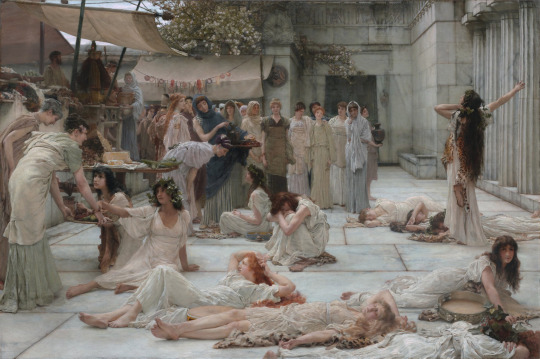
Lawrence Alma-Tadema - The Women of Amphissa (1887)
Followers of Bacchus, the god of wine, awaken in the marketplace of Amphissa, Greece, where they have wandered from their home in Phocis during a night of ritual dancing. Amphissa and Phocis are at war, but the women of Amphissa graciously offer the bacchantes nourishment and protection. The painting illustrates an event recorded by the Greek historian Plutarch, which Alma-Tadema staged as a lesson in charity for his Victorian audience. (source)
133 notes
·
View notes
Photo

Mount Parnassus, Greece by Christos Kapoulas.
#greece#europe#travel#snow#scenery#winter#mountains#landscape#parnassus#mount parnassus#boeotia#viotia#phthiotis#fthiotida#phocis#fokida#sterea hellas#central greece#mainland
200 notes
·
View notes
Text
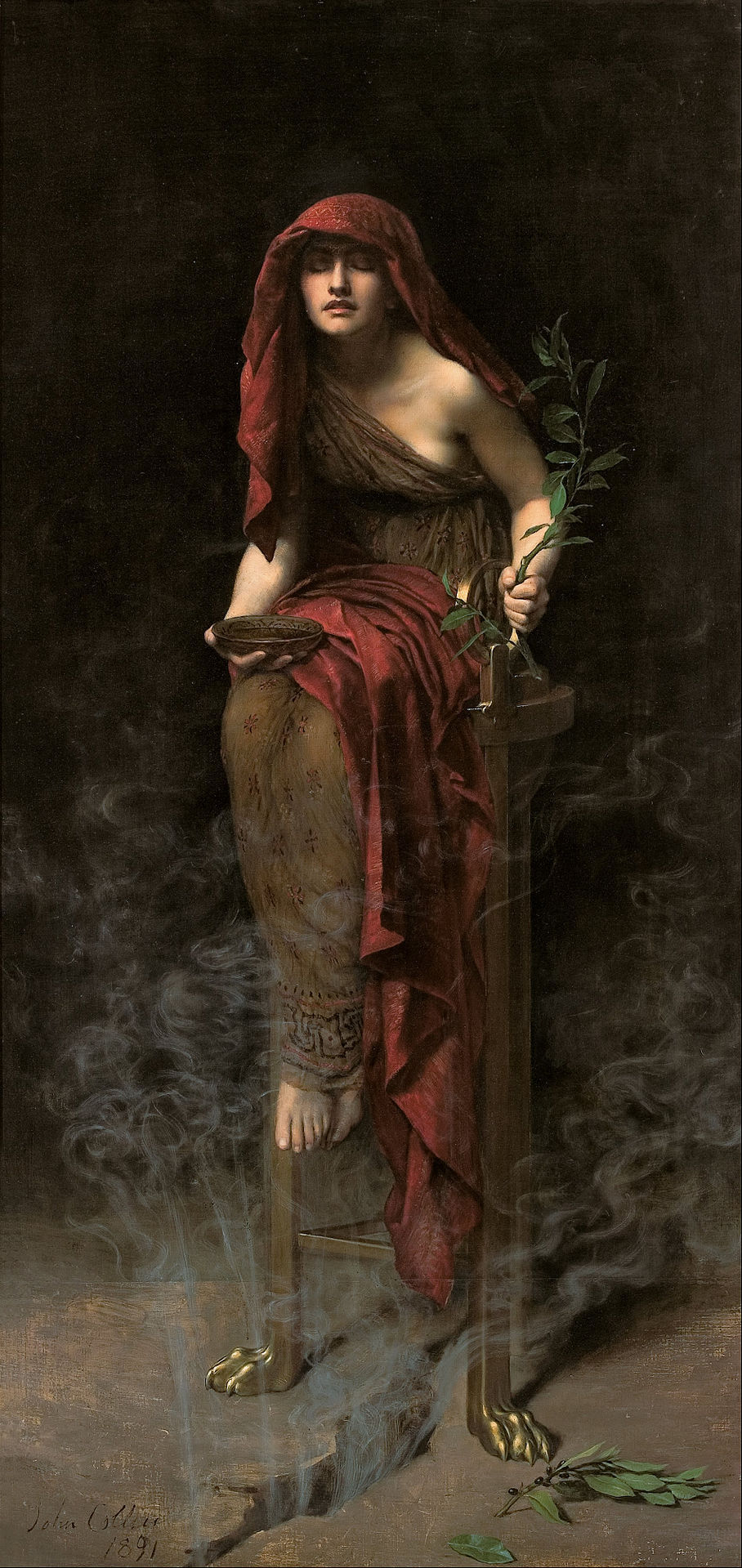
John Collier (English, 1850-1934)
Priestess of Delphi
670 notes
·
View notes
Note
"that follows the Cassandra was not claimed by agamemnon for sexual purposes, but leople don't seem to like that narrative" - can you explain this one a bit further? I kinda get what you're saying but its not something I've really heard before. Sorry if it's actually something obvious and I'm asking a basic question. Thank you for your time
sure sure! i spoke about this in my lectures and it made said when i verbalised it, but if it comes across all warped and muddled in word-form than please just ask me to clarify ASDFGHJKL
OKAY SO. we know that cly wanted to kill aga. it was planned. aeschylus (and to an extent the other tragedians) give us the whole watch-tower-carpet-walking scene that shows that. she WANTED to know when he was coming home to put her plan into action. homer is not so explicit BUT he, again, mentions that it was cly and aeg that killed him implying Some preparation. the two had a plan to execute.
it was not something she planned to do upon seeing aga arrive at mycenea with kassandra.
SO WE HAVE TWO THINGS - it was iphi. pretty black and white. aga had sacrificed their daughter ten years earlier and she spent ten years plotting his murder. did it. credits roll, that's that.
at least that's what the tragedians say. Homer doesn't say WHY. and this is where hyginus comes in and says:
§ 117 CLYTEMNESTRA: Clytemnestra, daughter of Tyndareus and wife of Agamemnon, heard from Oiax, brother of Palamedes, that Cassandra was being brought as a concubine to her house, a false statement Oiax made in order to avenge the wrong done to his brother. Then Clytemnestra, together with Aegisthus, son of Thyestes, planned to kill Agamemnon and Cassandra. They killed him with an axe as he was sacrificing, and Cassandra, too. But Electra, Agamemnon's daughter, rescued her brother, the infant Orestes, and sent him to Strophius in Phocis. Strophius had married Agamemnon's sister, Astyoche.
(disclaimer: hyginus is roman. however. we cannot say for certain he made this up lmfao. there may be something lost that he got this from. a play. a fragment. something from the epic cycle. We Don't Know. so dont come at me with 'UHHH THATS A ROMAN' - i know. but romans lived closer to the greeks than we do. they may have had access to stuff that we have now lost. okay? good.)
this does kinda hold up though. cause palamedes was wronged by his fellow greeks and aga is the leader of said greeks. so this statement does have legs.
SO LET'S SAY homer is right. there is just iphianassa, laodike and chyrso as his daughters. all alive and no iphi (like in the iliad) - why the plot to kill aga? in this timeline of events (that we know of) there is no iphi sacrifice.
THEREFORE. the spreading of a rumour that cly becomes aware of that she THEN concocts a plan to kill aga for makes sense. someone has told her about kassandra (falsely) and she's made her plan with aegisthus. THUS showing that kassandra being taken by aga for sexual purposes as a falsehood.
EXTENDING FROM THAT in Aeschylus, aga tries to get kassandra to acknowledge cly has her mistress or like cly to acknowledge she's now kass' mistress - which means she's there for cly. and that's a theme in TW too. that these trojan women are going back with greek men to serve their wives (like hecuba and penelope). ALSO. the ONLY reference made to kassandra being in aga's bed/sleeping with him etc. comes from cly. she's the only one who seems to be on that wavelength. nobody else is. aga never says it. kass never says it. only cly - she's the only one privy to the rumour. that's why.
ALSO in homer aga is killed at a feast. not in the bath. also also. kass is not killed with aga IN the bath if you wanna do the bath stuff. she is killed separately and then thrown on top of his body. they are Not bathing together. that is a modern sexualisation of the story (cause we love this shit to be sexual for some fuckin reason lmfaooo welp)
elephant in the room - euripides has kassandra make a big show of being a sexual slave to agamemnon when she leaves with him in trojan women. i've said it before, i'll say it again - euripides needs a LOT of context to be understood. he is ..... i dont wanna say projecting but i legit cant think of a better word ... about the war he is currently in.
NOW - am i saying 'aga doesnt suck cause he didn't wanna sleep with kassandra' NO. taking a poor girl from her home. killing her family. u know the spiel. is AWFUL. whether you sleep with her or not ... doesn't matter tbh. BUT it seems to be like concrete that that is what aga wanted and it's not .... that concrete, there is .... explanation for the contrary i suppose. also, people, stop making everything regarding the epic cycle about sex and sexual violence, like who are you? pat fucking barker?
#long post for ts ///#hope this made sense!!! <3333#i always sound so fucking mean lmfao but i just cant#express myself cause im stupid#and when i say 'people dont really like it' i mean like.#people just love to make aga unnecessarily more awful than he is???#and its always sexual???#like how they just gloss over the part were he SAYS he's never slept with briseis????#that just didnt happen apparently????
27 notes
·
View notes
Text

'027'
Greece, 1965.
I'm reasonably sure I've driven this stretch of road myself. Eastern Phocis on approach to Delphi, likely on what's now EO48. I wouldn't put money on it, though — not the betting sort; I was there in high summer; I don't really trust my memory of that year. The next several in this sequence of images come from the precinct proper.
15 notes
·
View notes
Text

Sir Lawrence Alma-Tadema, The Women of Amphissa, 1887.
Based off of an historical event recorded by the Greek historian Plutarch.
After a night of ritual dancing and drinking, followers of Bacchus, the god of wine, wake up to discover they have strayed from their home, Phocis. Instead, they are in the marketplace of Amphissa, Amphissa being currently at war with Phocis. Luckily, the women of Amphissa are kind and gracious, offering the bacchantes food and protection [from the men of Amphissa]. Painter, Alma-Tadema, uses this as a lesson in charity for his Victorian audience.
#academicism#if i could make being drunk look that pretty#i would#classical civilisation#classical antiquity#dark academia
4 notes
·
View notes
Photo
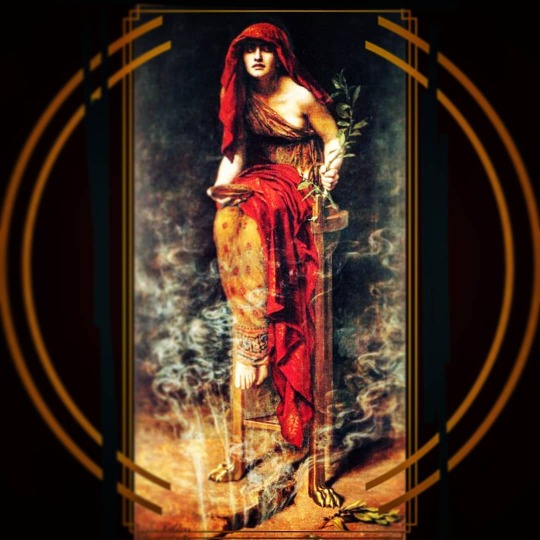
The Oracle of Delphi, a city in Phocis, was the most famous oracular centre in Greece, and it had established itself on all other oracles since the VII century BC. It was located on the slopes of Mount Parnassus, and had originated from the killing by Apollo of the monstrous snake Python, which had been once placed there to guard a sacred source. According to the myth, Apollo then installed the Phythian sanctuary and ordered that a virgin, the Phythia, uttered prophecies inspired by the divine exalations coming up from a crack in the ground, believed to be the very point where the Universe was born from. The pilgrims were admitted one by one inside the temple of Apollo. First, however, they had to purify themselves with the water from the source Castalia - just as Apollo himself had done after killing the Python - pay a tax and offer a goat as sacrifice to the god. From that moment the pilgrims were ready to meet the Phythia who, in the innermost cell of the temple, hidden from the gaze of men, was sitting on a high three-legged stool, the tripod, placed over the crack from which water from the Cassiotis sprung, along with psychoactive exalations. Originally the Phythia was a young virgin: later, a woman of older age was chosen, and she would live inside the sanctuary and observe rigorous chastity. Like the pilgrims, the Phythia also underwent a ceremony before uttering the response of the god Apollo: she would drink water from the Cassiotis source, chew some laurel leaves and absorbe the vapors that rose from some fissures in the ground and that would put her in a state of trance. The more or less intelligible sounds that came out of her mouth were reformulated by the priests often with ambiguous words: the risk of being contradicted by future events could definitively compromise the prestige of the Phythia. Therefore any wrong responses were attributed to the inability of the priests to understand the oracle, rather than the inability of the Phythia to predict the future. #oracle #oracleofdelphi #meditation #grounding #divination #scrying #oldworldwitchcraft #oldwalnuttree #oldreligion #witch #witchesofinstagram #wildwomanrising #wisewoman #witchywoman (presso Δελφοί (Delphi)) https://www.instagram.com/p/CB_5rtKqGLE/?igshid=NGJjMDIxMWI=
#oracle#oracleofdelphi#meditation#grounding#divination#scrying#oldworldwitchcraft#oldwalnuttree#oldreligion#witch#witchesofinstagram#wildwomanrising#wisewoman#witchywoman
2 notes
·
View notes